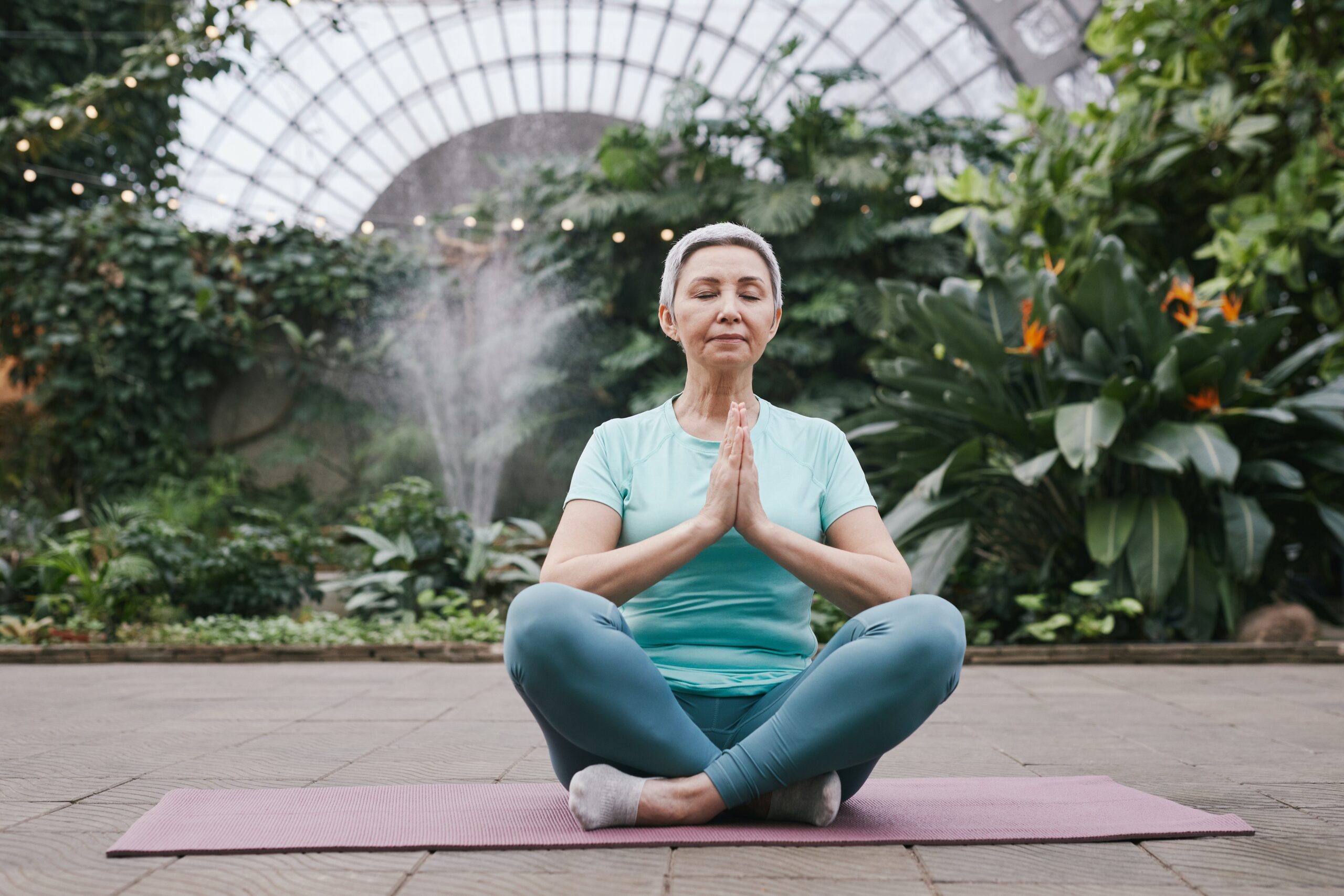Our current lifestyles cause us to experience a lot of stress and anxiety, which has a considerable impact on our health. It is important to take the time to find, from time to time, calm and serenity for our physical and mental well-being.
Research over the past 40 years has shown that meditation has measurable psychological and physiological benefits.
Here are 10 reasons to take the time to meditate:
1. To avoid depression
According to a study published in 2015 in the medical journal The Lancet (1), mindfulness meditation would be an alternative as effective as antidepressants against relapses of depression.
In addition, a study conducted on 91 women with fibromyalgia published in 2007 (2) reports a significant reduction in depressive symptoms in patients who participated in 8 sessions of 2.5 hours of meditation.
2. To learn to stop
Nowadays, we don’t really take the time to stop, we always do something during the breaks we take, like using our smartphone, watching a series or smoking a cigarette.
Meditation allows you to be more present to yourself and to the world around you by becoming aware of the simple fact of being there. To practice mindful meditation is to stop for a short time and come back to the present moment.
3. To be happy
A study published in the journal Scientific Reports (3) shows that meditation increases the volume of gray matter in the precuneus, a region of the brain that is larger in people who tend to feel positive emotions intensely and perceive real meaning. to their life.
4. To reduce stress
The effect that meditation has on stress is one of the best known benefits.
In 2008, a study showed that Mindfulness-Based Stress Reduction was effective in reducing stress and anxiety (4) in both healthy people and those with chronic conditions.
5. To sleep better
Some people show a reduction in insomnia through mindfulness meditation techniques. Thanks to its relaxing effect, meditation can be an effective solution against insomnia when it is caused by stress and anxiety.
6. To avoid migraines
According to research published in the medical journal Headache (5), meditation may provide migraine relief. This research submitted a panel of 19 chronic migraine sufferers to the MSBR (Mindfulness-based stress reduction) method for 8 weeks. The result: a reduction in the frequency of migraines for patients who have followed the mindfulness relaxation method.
7. To control his emotions
Starting in 1998, psychology professor Paul Ekman, who directs the human interaction laboratory at the University of California, conducted various experiments, including one on the startle (6). He discovered that the more a person is prone to negative emotions, the more he jumps.
During his research Ekman equipped the Buddhist monk Matthieu Ricard with sensors and electrodes and made him hear a deafening noise, equivalent to a large firecracker which would burst next to the ear, and asked him to suppress his start. The monk did not move and claimed to have heard only a small noise.
The daily practice of meditation, which leads to great serenity, can help us master all our emotions.
8. To reduce blood pressure
When one reaches a state of relaxation through meditation, it causes a drop in blood pressure by dilating the blood vessels.
In a study from the Benson-Henry Institute for Mental Health in Boston, patients with high blood pressure tested daily meditation with the help of a cardiologist. After 3 months of practice, 40 of the 60 study participants reduced their blood pressure medication. Meditation helps increase the body’s production of nitric oxide (a gas that helps expand blood vessels, allowing better blood flow).
9. To avoid burnout
Burnout is a disease that stems directly from chronic stress related to the professional environment, different from depression.
American researchers have tested a meditation technique on doctors, a profession very affected by burnout. For this study (7), 70 doctors followed mindfulness meditation sessions for 1 year.
The meditation sessions had the effect of reducing symptoms associated with burnout. At the end of the program, participants’ emotional exhaustion had decreased by 25.4%.
10. Because it’s free!
You can of course practice meditation during a private or group lesson that you will pay for, but meditation can very well be practiced alone, at home, for free!
- Effectiveness and cost-effectiveness of mindfulness-based cognitive therapy compared with maintenance antidepressant treatment in the prevention of depressive relapse or recurrence (PREVENT): a randomised controlled trial.
- Paul Grossman, Ulrike Gilmer, Annette Raysz and Ulrike Kesper. 2007. Mindfulness Training as an Intervention for Fibromyalgia: Evidence of Postintervention and 3-Year Follow-up Benefits in Well-being. Psychology and Psychosomatics 76: 226-233.
- Wataru Sato, Takanori Kochiyama, Shota Uono, Yasutaka Kubota, Reiko Sawada, Sayaka Yoshimura & Motomi Toichi , The structural neural substrate of subjective happiness.
- Praissman S. Mindfulness-based stress reduction: a literature review and clinician’s guide. J Am Acad Nurse Pract. 2008 Apr;20(4):212-6. Review.
- Rebecca Erwin Wells, Rebecca Burch, Randall H. Paulsen, Peter M. Wayne, Timothy T. Houle, Elizabeth Loder ” Meditation for Migraines: A Pilot Randomized Controlled Trial”. Article publié dans la revue Headache : The Journal of Head and Face Pain, Volume 54, Issue 9, pages 1484–1495, October 2014. Disponible à cette adresse : http://onlinelibrary.wiley.com/doi/10.1111/head.12420/abstract (en date du 2 décembre 2014).
- Robert W. Levenson, Paul Ekman, and Matthieu Ricard, Meditation and the startle response: A case study, Emotion 2012, 12(3)
- Krasner MS, Epstein RM, Beckman H, et al. Association of an Educational Program in Mindful Communication With Burnout, Empathy, and Attitudes Among Primary Care Physicians. JAMA. 2009;302(12):1284-1293. doi:10.1001/jama.2009.1384
